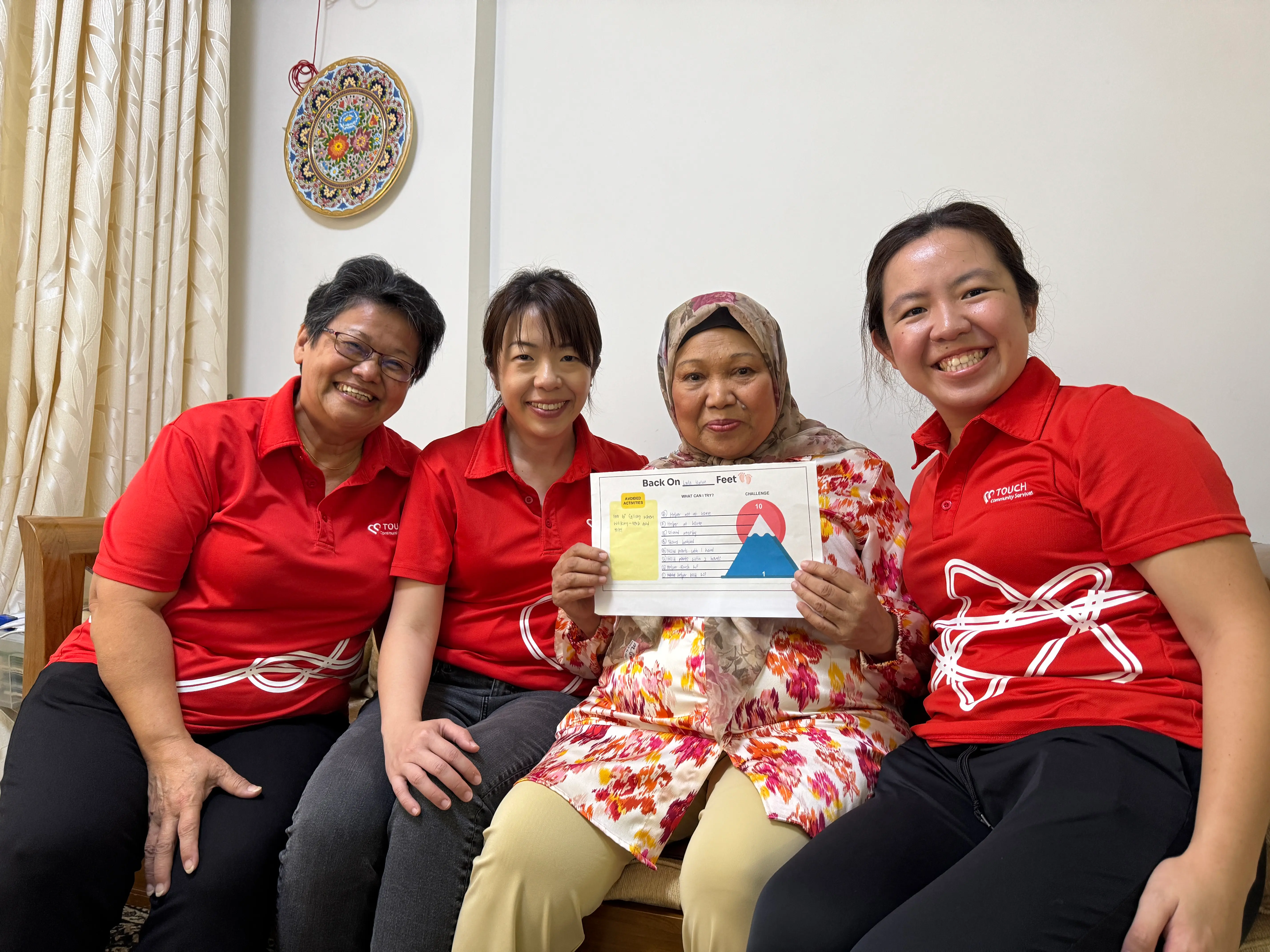The Road to Recovery After Encountering a Scam

When Grace[1] (not her real name) encountered a love scam and lost $60,000, she was greatly affected. More than half a year later, Grace is still rebuilding her self-confidence. She was not sleeping well and was in a low mood. This affected her ability to retain information and perform at work.
Grace is one of many victims among increasing cases of scams lately, and it could happen to anybody.
In the first two weeks of April alone, it has been reported[2] that there have been more than 990 cases of scams in Singapore, with over $8.9 million lost to scammers.
What are some impacts of scams on one’s health?
The impact of scams go far beyond one’s finances. It can affect victims socially, emotionally, and mentally as well.The financial impact of scams brings stress that can be both intense (from the sheer amount lost) and chronic (long-term as they seek to recover the loss). Such stress can also lead to depression or other disorders such as anxiety. This can manifest in symptoms such as low mood, sleep issues, or panic attacks that can affect one’s daily and social functioning. This would affect their performance at work.
Scam victims may also experience a sense of shame or self-reproach, which in full effect can lead to depression. Shame or guilt may also cause victims to withdraw socially. This is a double-whammy because isolation forces victims to bear the full burden of the loss while simultaneously denying themselves the social support they need to get better.
Some have also experienced trauma and paranoia after becoming a scam victim. For instance, victims may be afraid to pick up phone calls and become excessively scared of handling money.
So, how do you seek help for your mental health?
- Don’t isolate yourself
Social support is important to help you get back on your feet. Your family and friends can help to share your burdens and meet your needs, be it practical, financial, or emotional.
- Be kind to yourself
While your negative emotions are valid, dwelling on the shame will not help to move the situation forward. Recognise that everyone makes mistakes, and it does not mean that you are a failure.
- Grief management
In cases where the loss cannot be recovered, it is helpful to move on from denial (“Maybe I can still get the sum back from scammer”) and anger or regret (“Why did I click the link?”) to acceptance (of the loss). Planning active steps will also help in recovering financially and emotionally. Do also manage your expectations as it could be a long journey of recovery.
- Self-care
Engage in something you enjoy to relax and take your mind off the pain of your loss.
- Seek professional help if needed
If you are feeling low for a period of time and it is seriously interfering with your ability to function at work, with your family and in your social life, it would be helpful to seek professional help. You can call counselling helplines such as TOUCHline to speak to a counsellor.
Practical tips to support your family or friend in their recovery
- Mind your language
It is important to be sensitive to your family or friend who is recovering. For example, using phrases such as “falling prey to scams” may imply that victims were gullible, which unintentionally reinforces their poor self-image and feelings of shame.
- Hold off on the correction
Phrases such as “you should not have” or “next time, be more careful” may mean well, but it could come across as unempathetic to your family or friend at this point of time. Address how they are feeling first. The correction can come later, at a time when victims are in a better frame of mind to handle the feedback emotionally.
Ultimately, anyone can be caught in a scam. While you may be unfortunate, you are not “stupid”. Do not blame yourself for the unscrupulousness of scammers.
TOUCH Mental Wellness is here to support you and your loved ones. Please call TOUCHline at 1800 377 2252 (Mondays to Fridays, 9am to 6pm) if you would like to speak with a counsellor.
TOUCH Mental Wellness (TMW) runs personalised therapy and counselling programmes to empower individuals to rise above their circumstances. An advocate of mental wellness, TMW has been organising mental wellness awareness mass runs, talks and workshops since 2015. It works closely with corporations to conduct mental wellness talks with an aim of equipping employees with handles to cope with stress and help them build resilience. It also specialises in mental wellness awareness and educational programmes for schools.


